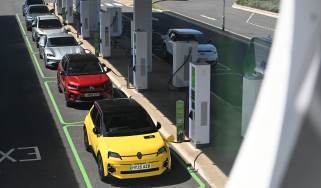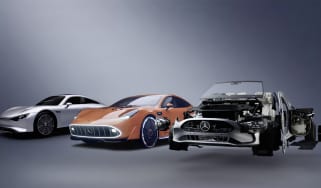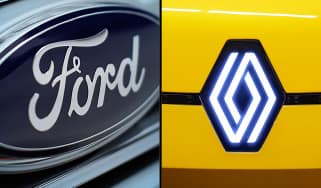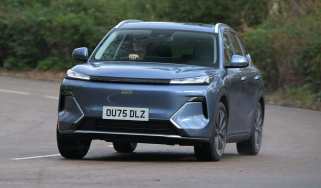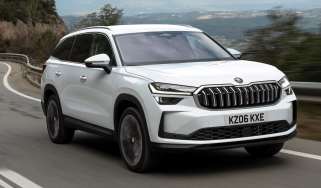How long do electric car batteries last? Replacement, warranties and battery life explained
The battery is a crucial and expensive part of an electric car. Here's everything you need to know about its longevity
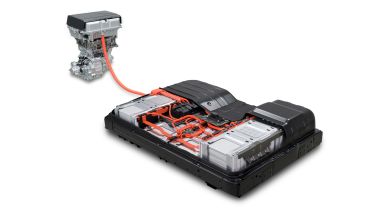
Petrol and diesel cars come with many parts that wear out, and while electric cars have fewer moving parts, consumables and fluids to worry about, their batteries do also wear out over time.
Because the battery in an electric car is such an expensive component and so important to the operation of the car, the idea of batteries losing power and holding less charge can get prospective electric car owners worried.
There's no need to be unduly concerned about the battery in your electric car wearing out, however – generally speaking, car manufacturers have you covered with batteries that are designed to last a long time and comprehensive warranties. The battery in most EVs will outlast the car, although battery performance will decline over time.
Electric car battery life
The vast majority of electric cars use a lithium-ion battery, similar to those found in smartphones but on a much larger scale. As with smartphones and other electrical devices, these batteries will degrade gradually as they are charged and discharged repeatedly over time. This in turn means that all electric car batteries have a finite lifespan – but unlike a phone, replacing a car battery is a very expensive job.
Thankfully, you’ll need to cover a lot of miles – and carry out many charging cycles – to notice a significant drop in battery performance in your EV. Every full charge slightly chips away at a battery’s capacity but the rate of decline is slow – about one or two per cent per year.
Electric car batteries tend to suffer if exposed to extremes of temperature, and particularly if the battery’s temperature itself rises. This is why overcharging is limited by a car’s on-board computer, and many electric cars use cooling systems when charging to prevent overheating.
Certain charging behaviours can accelerate battery degradation, with the most common being regular rapid charging and ‘deep discharge’ – that is, using the full capacity of a battery repeatedly.
Many electric car manufacturers recommend only charging to 100 per cent when the full range is required for a big trip. For example, MG suggests only charging between 20 and 80 per cent to extend battery life, and not to let charge drop below 50 per cent ‘too often’.
Electric car battery warranty: what happens when the battery degrades?
There are a number of possible outcomes if an electric car battery has degraded to the point that it is unusable.
If the battery was leased under a separate agreement – a model that was more common in earlier modern electric cars from Renault – the battery will be replaced or repaired free of charge if it’s found to have degraded, usually when a battery gets to about 60 or 70 per cent of its original capacity.
Much more common today is a battery with a separate warranty to the car itself. These usually run for eight or 10 years, with a common limit of around 100,000 miles – more than enough to cover most buyers’ typical three- or four-year tenure with a car on a finance deal. The same 60 or 70 per cent performance degradation rule usually applies but battery replacement agreements vary.
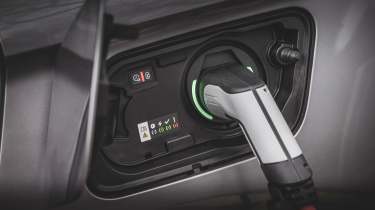
If you own the whole electric car, perhaps used, and the battery is out of warranty, all you can do is buy a new battery or repair the existing unit. Replacement will cost several thousand pounds in most cases, so it’s a good idea to pay close attention to the condition of the battery in any purchase of a higher-mileage electric car - just as you would with the engine and gearbox of a petrol or diesel car.
You can expect old or higher mileage used cars to have significantly reduced battery capacities and shorter ranges but they are still perfectly usable unless the battery actually fails - which is a rare event. Electric car battery repairs are possible with many specialist companies now offering these services for older cars that are out of warranty.
What happens to the battery after it’s been replaced?
When a typically degraded electric car battery is removed from a car, it generally doesn’t head straight for landfill. There are countless companies making the most of these batteries, either through conversion for other applications or via recycling of their valuable constituent components including nonferrous, precious and rare-earth metals.
One common application is domestic solar panel setups, maximising the efficiency of such systems by storing energy for use on less sunny days. This storage solution has also been scaled up to industrial levels to offer back-up power for large public buildings. Naturally, many car companies are already in on the action to maximise profits from their stock of used car batteries.
In other cases, metals like cobalt, lead and nickel are extracted to be used to create more new batteries. This is a more involved process but still worth doing, as Volkswagen decided when it opened a dedicated recycling plant in Germany in 2021 where it’s claimed 90 per cent of raw battery materials can be reused.
For more information on EV battery recycling, see our page on the subject here...
Your electric car questions answered
- Electric car FAQ
- Should i buy an electric car?
- What’s the best way to buy an electric car?
- Is a hybrid, plug-in hybrid or electric car right for me?
- Should i buy a used electric car?
- Can i get a plug-in car grant?
- How is electric car range calculated?
- How much do electric cars cost to charge?
- How much do electric cars cost to run?
- What happens to old electric car batteries?
- Should i get a heat pump on my electric car?
- What are fast charging and rapid charging?
- Should i get a home electric car charger?
- Can i tow with an electric car?
- Is wireless electric car charging the future?
- What’s the history of the electric car?



